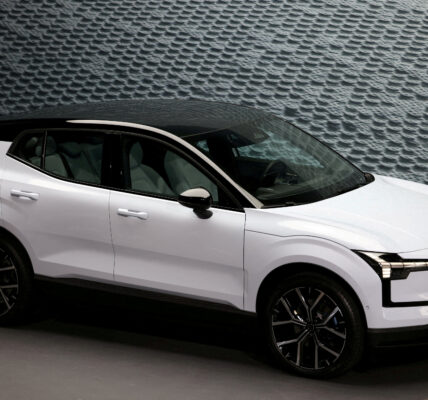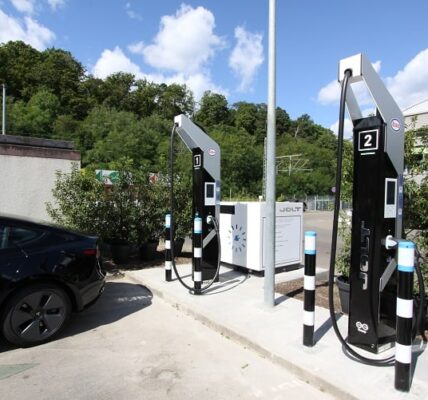Scania is to offer pay-per use electric trucks through a joint venture, as the Swedish truckmaker tries to encourage faltering demand for heavy-duty electric vehicles in Europe.
Demand for electric trucks in Europe has remained lower than many truckmakers had expected, partially due to the slow rollout of charging infrastructure for e-trucks as well as high prices for battery-driven vehicles.
Together with Berlin-based logistics start-up Sennder, Scania will launch a joint venture that will allow carriers to rent e-trucks for specific jobs, rather than having to purchase them to add to their fleet, a first for electric trucks.
The two companies have pledged to invest €1.5bn into the Berlin-based joint venture called Juna over the next six years. Scania, which is wholly owned by Volkswagen, forecasts that 10 per cent of the 50,000 e-trucks sales it expects to sell annually by 2030 will be to Juna, which is planning to have 100 trucks in its fleet by next year.
“There’s a lot of risk for [hauliers],” said Gustaf Sundell, Scania’s board member responsible for new business ventures. He added that roughly 70 per cent of Europe’s carriers are small companies with less than 10 trucks in their fleet. “We want to take away part of that commercial risk.
”Trucks are responsible for more than two-thirds of European CO₂ emission caused by traffic.
But despite EU regulations that will make emissions more costly, few haulage groups have started to shift from trucks fuelled by gas or diesel to battery-powered models. In August, only 400 out of the 800,000 trucks navigating German roads were electric.
Sennder, a freight forwarder matching shippers and carriers, helps minimise the number of trucks returning to their base empty. Combined with Juna’s pay-per-use model, the company could “effectively remove the barriers of adopting e-trucks”, said chief executive David Nothacker. He added that electric heavy-duty vehicles were still “two to three times” more expensive than diesel trucks.
Scania’s most powerful battery-driven electric truck available has a range of 350km — it is launching one next year with a 400km range.Diesel trucks have a far greater driving range, with some running more than 3,000km on one tank. However, Sundell said that range of e-trucks suited European legislation, which mandates that heavy-duty truckers rest 45 minutes for every four and a half hours of driving.“That’s basically how we have been designing [the trucks]. [350km] is enough to drive for four and a half hours, you can recharge the vehicle in 45 minutes and then go again.”








